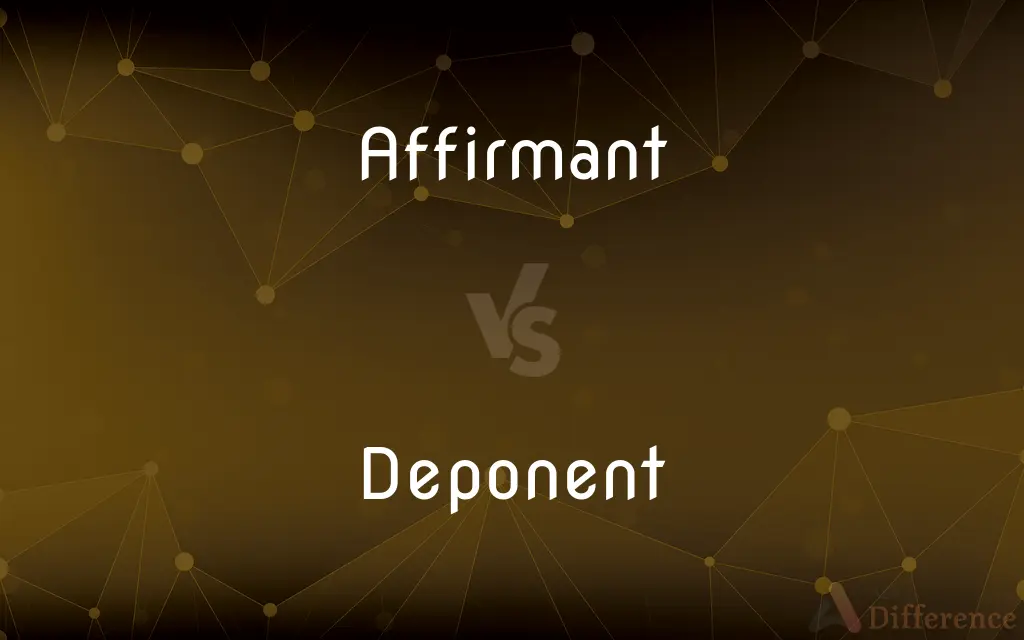Affirmant vs. Deponent — What's the Difference?

Difference Between Affirmant and Deponent
ADVERTISEMENT
Compare with Definitions
Affirmant
To declare positively; assert to be true
A philosopher affirming the existence of free will.
A document affirming that each student has completed the course.
Deponent
Being a verb of active meaning but passive or middle form, as certain Latin and Greek verbs.
Affirmant
To declare support for or belief in
Affirm the right to self-determination.
Deponent
(Grammar) A deponent verb.
Affirmant
(Law) To rule (a court decision) to have been correct; confirm
The Supreme Court affirmed the lower court's decision.
ADVERTISEMENT
Deponent
(Law) One who gives testimony by affidavit or deposition.
Affirmant
To assert that one will give true testimony equivalent to that which would be given while under oath.
Deponent
Having passive grammatical form (that is, conjugating like the passive voice), but an active meaning.
Affirmant
One who affirms or asserts.
Deponent
(legal) A witness; especially one who gives information under oath, in a deposition concerning facts known to him or her.
Affirmant
(legal) One who affirms of taking an oath.
Deponent
(grammar) A deponent verb.
Affirmant
One who affirms or asserts.
Deponent
One who deposes or testifies under oath; one who gives evidence; usually, one who testifies in writing.
Affirmant
One who affirms, instead of taking an oath.
Deponent
A deponent verb.
Deponent
Having a passive form with an active meaning, as certain latin and Greek verbs.
Deponent
A person who testifies or gives a deposition
Share Your Discovery

Previous Comparison
Demolish vs. Dismantle
Next Comparison
Affected vs. Effect













































